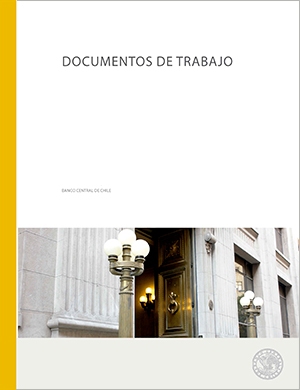Working Papers N°872: Over-indebtedness in Households: Measurement and Determinants
Publications
Working Papers N°872: Over-indebtedness in Households: Measurement and Determinants
Autor: Benjamín García , Juan Guerra-Salas
Description
An immigration shock has an ambiguous effect on inflation, since there are multiple channels working in both directions. On one hand, aggregate demand increases with a suddenly larger population, creating inflationary pressure. On the other hand, the labor market becomes slacker as immigrants search for jobs, containing wage growth and creating disinflationary pressure. With these and other channels operating, the response of an inflation-targeting central bank is not obvious. We study these channels in a New Keynesian general equilibrium model of a small open economy with search frictions in the labor market. The analysis is grounded on motivating empirical evidence that suggests that the net effect of an immigration shock on inflation is negative. To discipline the model, we focus on Chile, an emerging country that has experienced a substantial immigration shock in recent years. The net disinflationary effect of immigration is mainly driven by the labor supply channel, which is supported by evidence on how immigrants integrate to the labor market. We also study the role of issues such as the lower human capital of immigrants, the remittances that they send to their
home countries, and their consumption preferences, which are likely relatively biased toward foreign goods, among others.
Working Papers N°872: Over-indebtedness in Households: Measurement and Determinants
Boxes and graphics

